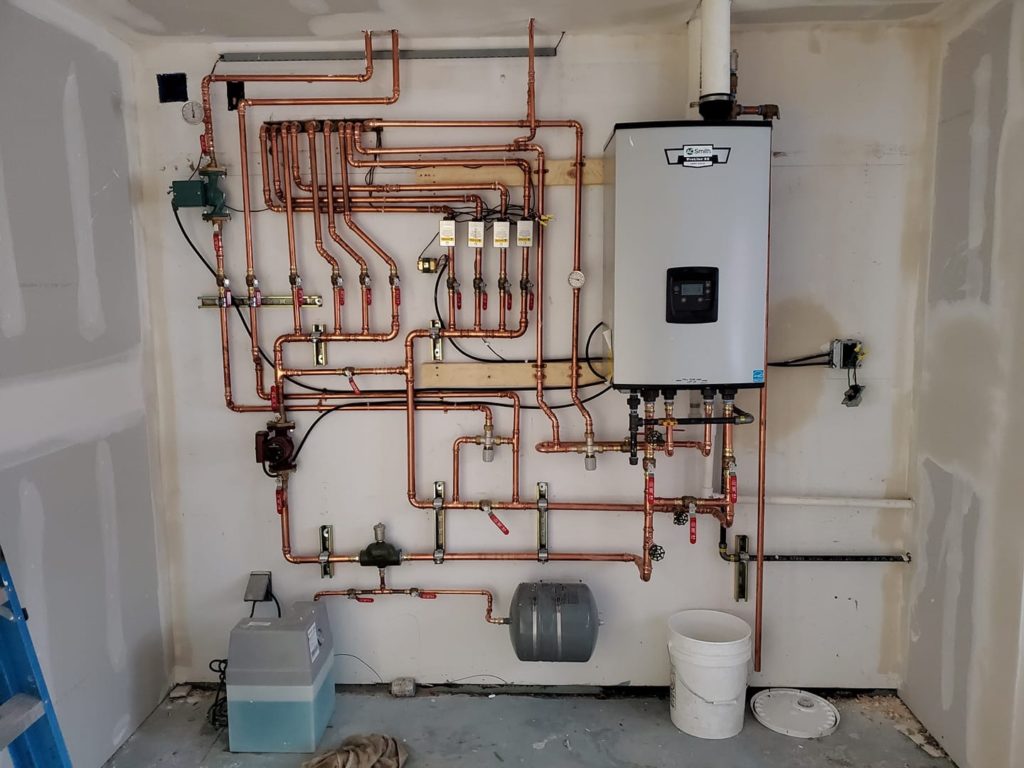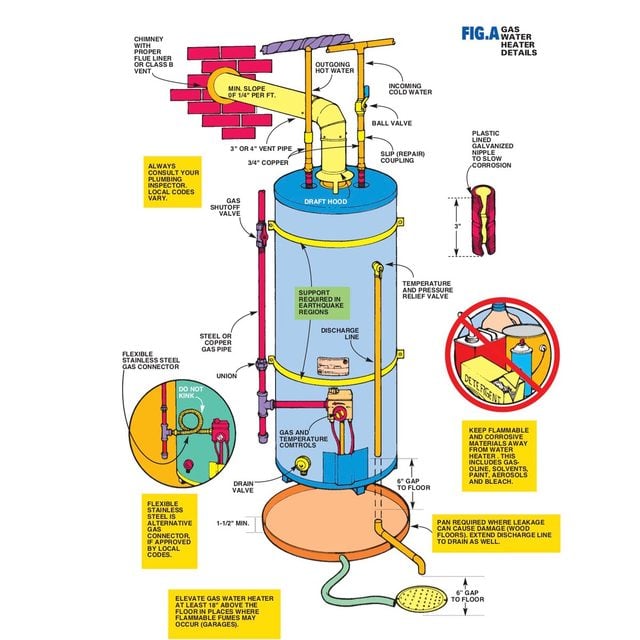Exactly How to Choose the Right Water Heater Installation for Your Home
Picking the appropriate water heating system installation for your home needs a thorough understanding of different factors, including your home's details hot water needs and the kinds of heating systems offered. In addition, factors to consider around power effectiveness and installment costs play a critical function in the decision-making process.

Analyze Your Warm Water Demands
Examining your warm water needs is essential for picking an appropriate water heater that effectively meets your household demands. To begin, consider the number of residents in your house and their everyday regimens, as these variables substantially influence warm water intake. Bigger families commonly require higher hot water capacity for tasks such as showers, laundry, and dishwashing.
Identify when your family calls for the most hot water simultaneously. In addition, consider the certain devices and fixtures that take in hot water, including cleaning taps, machines, and dishwashing machines.
It is likewise important to make up any future adjustments in your family, such as added member of the family or modifications in way of life that may raise hot water demand. Analyze the power performance of possible water heater alternatives, as this can significantly influence long-lasting operating prices. By extensively reviewing these variables, you can make an informed choice that straightens with your warm water requirements and promotes efficient energy usage in your house.
Discover Various Water Heating System Kind
When exploring various hot water heater types, it's necessary to understand the numerous alternatives offered and their special functions. The most usual types include container water heating units, tankless water heaters, heatpump hot water heater, and solar water heating units.
Storage tank water heating systems are standard systems that keep a particular quantity of warm water, making them appropriate for households with consistent need. Nonetheless, they can lack warm water during top use.
Tankless water heating units, on the other hand, warm water on demand, offering an unlimited supply. They are suitable for smaller areas and can be more energy-efficient, however may call for a greater in advance investment.
Heatpump water heaters make use of electrical power to move warm from the air or ground, making them efficient options in moderate climates. They can be more complex to install and may require added area.
Finally, solar water heating systems harness sunlight to warmth water, providing an eco-friendly option. They require a significant first investment and hinge on warm conditions yet can dramatically decrease energy costs in time.
Each kind has distinctive benefits and considerations, making it vital to assess which finest fits your family's requirements and preferences.
Take Into Consideration Energy Effectiveness Scores
Comprehending the different sorts of water heaters normally results in the consideration of their power efficiency scores. Energy effectiveness is an important aspect in choosing a hot water heater, as it directly influences your energy costs and the ecological impact of your household. Hot water heater are typically rated making use of the Power Variable (EF) or the more recent Attire Power Variable (UEF) metrics, which quantify their performance by gauging the energy consumed versus the warm water produced.

It is additionally vital to review the Power Star qualification, which represents that a water heater fulfills strict efficiency requirements. Selecting a hot water heater with a high energy effectiveness ranking can not just reduce your energy expenses but also improve the total comfort of your home, making it a vital facet of the decision-making process.
Evaluate Installation Costs
Assessing installation costs is an important step in the selection procedure for a water heater, as it includes not just the price of the system itself yet also the costs connected with its installment. It is necessary to get thorough estimates from multiple specialists to guarantee a comprehensive understanding of prospective expenses. This includes labor fees, any type of essential authorizations, and materials required for the installment.
When analyzing installment expenses, think about the intricacy of the setup process. Aspects such as the location of the hot water heater, existing plumbing framework, and whether the setup involves changing an old unit or mounting a brand-new system can considerably influence overall costs. As an example, retrofitting an existing area might incur additional prices contrasted to an uncomplicated setup.
Furthermore, bear in mind the long-lasting ramifications of setup expenses. Some hot water heater might have higher in advance setup expenses but provide greater power efficiency, resulting in financial savings on energy bills in time. Ultimately, an extensive examination of setup prices, combined with an understanding of the unit's long-term efficiency, will direct you in making a notified choice that lines up with your spending plan and requirements.
Evaluation Maintenance Needs
Regular maintenance is vital for making sure the long life and performance of a hot water heater. This procedure normally includes routine assessments, cleaning, and necessary modifications to maintain the system in optimal working problem. House owners need to arrange annual expert maintenance, that includes examining the anode pole, purging the storage tank to eliminate debris buildup, and inspecting the pressure relief valve.
For tankless water heating units, maintenance concentrates on descaling the system her response to protect against mineral build-up, especially in locations with hard water. Furthermore, it is very important to official source examine and clean filters regularly to maintain proper water circulation.
House owners ought to additionally perform regular aesthetic evaluations, looking for indications of leakages, deterioration, or unusual noises, which might show underlying problems. water heater. Regularly testing the temperature and stress relief valve is additionally vital, as a malfunctioning shutoff can result in dangerous pressure build-up
Finally, following the maker's certain upkeep guidelines is essential. These standards typically include suggested upkeep intervals and certain jobs to ensure the system runs successfully and safely. By adhering to proper upkeep protocols, property owners can prolong their hot water heater's life expectancy and improve its effectiveness, inevitably minimizing power costs and reducing the likelihood of costly fixings.
Conclusion
Picking the suitable water heating system setup requires a thorough analysis of home warm water needs, the exam of different kinds of water heaters, and consideration of power efficiency rankings. Furthermore, an analysis of installation expenses and maintenance obligations is necessary for making sure optimal efficiency and long life. By adhering to these standards, homeowners can make informed choices that not only deal with prompt requirements but likewise advertise lasting power efficiency and cost-effectiveness in water home heating solutions.
Selecting the ideal water heating unit installation for your home needs a comprehensive understanding of various aspects, including your home's specific hot water demands and the kinds of heating systems readily available.Evaluating your hot water demands is important for selecting a suitable water heating unit that successfully satisfies your home needs. Water heating systems are normally rated utilizing the Power Element (EF) or anonymous the newer Attire Power Factor (UEF) metrics, which measure their efficiency by gauging the power taken in versus the hot water generated.
Some water heaters might have greater upfront setup expenses however provide better energy efficiency, leading to financial savings on energy bills over time. water heater.Selecting the suitable water heating system installation demands a thorough assessment of home warm water requirements, the examination of various types of water heating units, and consideration of power effectiveness ratings